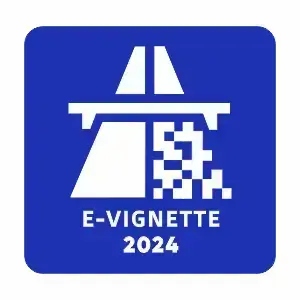In two weeks, the public will vote on whether to widen the motorways in particularly busy sections such as those around Geneva, Bern, Basel, St. Gallen and Schaffhausen. State costs are estimated at nearly 5 billion francs. The question of whether this investment can be financed exclusively from the Road Fund (NAF) is currently the subject of intense debate. Apparently, there is no consensus even in government circles. The SVP transport minister, Albert Rösti, referred to the law on freedom of information and wanted to emphasize in the voting information that the highway expansion could be implemented without new taxes, as reported by "Schweiz am Wochenende". On the other hand, the FDP finance minister, Karin Keller-Sutter, corrected this statement and omitted the "no new or additional taxes" part from the voting documentation. This is also reported in documents that are in the possession of the editors. In its 2022 report, the Federal Council also believed that NAF reserves would decrease to such an extent in the coming years that by 2027 a gasoline price increase might become necessary. If these fall below 500 million francs, the policy should increase the mineral oil tax by 4 rappen/liter. "This can be misunderstood" Albert Rösti emphasized every time in recent weeks that there is no connection between the expansion plan and the increase in the price of gasoline. He assured both in an interview with "20 Minuten" and in the SRF "Arena" that there is no need to increase the fuel tax for the six expansion projects.
Now, in an interview with "Schweiz am Wochenende", he spoke about the division between the finance and transport ministries. He stated that the increase in the price of gasoline can be avoided by changing priorities, and that he expects the situation of road funds to improve from 2030, since electric vehicles will also be taxed from then on. In addition, according to Rösti, it is not surprising that the Ministry of Finance strives for higher revenues. Gasoline prices fluctuate anyway due to the geopolitical situation, in other words: "Even if the proposal is rejected, the price of gasoline may increase." Jon Pult, SP parliamentarian and opponent of enlargement, is outraged: “The more they spend, the greater the risk of underfunding. Rösti tries to obscure and cover this up, he simply denies it." He considers it annoying and unfair that it took weeks and even pressure for the public to find out that there is actually a connection between the highway expansion and gasoline prices. "It shows how opaque they work." In addition, according to Pult, the costs of the expansion project are expected to exceed 5 billion francs, "we expect at least a billion more." It is clear that gasoline will become more expensive, which will primarily affect the rural population, who rely on the car, while urban residents oppose the expansion due to increased traffic. "Creating the mood before the vote" Philipp Kutter, member of parliament from the center party, considers the debate to be a classic way to create a mood in the last stage before the vote. There are many reasons why gasoline prices are rising, he says, the most important of which is the rise of electric cars over traditional engines. He is confident that this structural financing problem will be solved by 2030, and there is a broad consensus for this. "In any case, it is a simplistic approach to say that the national road fund would be in a difficult situation because of the planned expansion. It's simply part of the voting struggle. Now they are trying to scare motorists."



 Deutsch (DE)
Deutsch (DE)
 Greek (GR)
Greek (GR)
 Italiano (IT)
Italiano (IT)
 Magyar (HU)
Magyar (HU)
 Polski (PL)
Polski (PL)
 Română (RO)
Română (RO)
 Slovensky (SK)
Slovensky (SK)
 Slovenščina (SL)
Slovenščina (SL)
 Türkçe (TR)
Türkçe (TR)
 Česká (CZ)
Česká (CZ)








